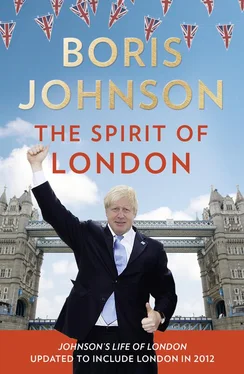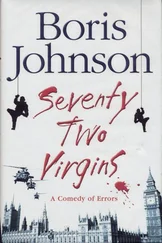And lo! Now it was the morning of the first day, and the Opening Ceremony had evidently been a far bigger success than we had expected. The transport had coped, there had been no bomb scare, and above all there had been barely a drop of rain – a fine Scotch mist, perhaps, about an hour before it began, no more.
For the first few days it remained a see-saw between hope and gloom, with some of the media still doing their best to stress the downside. A G4S guard was arrested for a bomb hoax, and there were persistent reports of ticket touting by members of the visiting athletic teams. But the story that threatened most embarrassment was the ‘empty seat scandal’ – a phenomenon seen at every Olympics, where the cameras dwell on seats not occupied by IOC members and other sporting officials, and the general punter – who has tried and failed to buy tickets – is whipped up into a state of understandable wrath.
We managed to solve the ‘empty seat scandal’, mainly by getting armed services personnel to sit in the gaps; and then it was claimed that London had been turned into a ‘ghost town’ and that business was on its knees after our travel warnings – including some perfectly reasonable announcements I made over the Tube, encouraging Londoners to plan their journeys – were said to have scared people away.
Then I heard that the Live Sites, the special spectator zones we had created in Hyde Park and Victoria Park, were not always full. Where was everybody?
At one point I turned to my Olympic Adviser Neale Coleman, and said, ‘It feels like we are giving the biggest party in the world, and no one is showing up.’
‘Don’t worry,’ he said. ‘All Olympics are like this in the first few days. It will build.’
In an attempt to drum up custom for the Victoria Park live site, I went out there to launch the zipwire. During the preparations for the Games I had insisted that we must have zipwires in the parks, even though Neale said that his experience from the Vancouver Winter Olympics was that they were more trouble than they were worth. I felt honour bound to give it a go.
When we got to Victoria Park I was slightly unnerved to find a Health and Safety Officer from Tower Hamlets was just finishing his checks, and it was proposed that I should be the first to launch myself into space.
‘Are you sure you shouldn’t try it?’ I asked one of the fellows who seemed to be running it.
‘No, no,’ he said modestly. ‘We don’t want to spoil your photo.’
The thing was a lot higher and a lot scarier than I had expected, but there was nothing for it. Waving a couple of plastic Union Jacks I lurched off the tower rather fast, and immediately found myself spinning round so that I couldn’t see where I was going. I shot over knots of people in the park and then came to rest some way short of my destination, and about 30 feet up. A crowd formed beneath me as people twigged that this wasn’t part of the plan. I tried diverting them with rousing remarks about how well our team was going to do against France and Australia. Their enjoyment of my position was growing, however, and there seemed no clear plan for getting me down.
The harness was starting to chafe, especially in the groin area.
‘Has anyone got a ladder?’ I asked.
No one had a ladder. At length I spotted my Special Branch personal protection officer, a nice chap called Carl. He had been seconded from his normal job of guarding Tony Blair, and was supposed – I reasoned – to rescue me from embarrassing predicaments.
‘Carl,’ I said, ‘is there anything you can do?’
Slowly he reached into his breast pocket, took out his mobile phone, aimed carefully, and took a picture of my dangling form … The only positive thing you could say about the episode is that at least we gave that zipwire some publicity.
But the truth is that nothing was really going to give the thing lift-off until we started winning gold medals, and they were nerve-wrackingly slow in coming. The great cyclist Mark Cavendish didn’t win his first road race on the Saturday, even though everyone told us that it was meant to be a cert. Then we didn’t seem to be doing quite as well in the pool as we had hoped, and though Becky Adlington swam heroically, she didn’t take gold, as she had in Beijing.
We seemed to be well behind France and Australia in the medals table. In fact we were languishing at about tenth or even twelfth – and the French president François Hollande came over to say something smug about how decent it was of Britain to roll out the red carpet for French athletes to win on.
And then in the middle of the first week, round about the time Bradley Wiggins won his gold in the cycling time trial, you could feel something shift in the general mood – a stirring in the noosphere.
Everyone was becoming transfixed by the sport – even people who had hitherto had no real interest in sport; and the people who were lucky enough to get into one of the venues were reporting the time of their lives. Seb Coe, Paul Deighton and the rest of Locog deserve credit for many things, but if one thing distinguished London from Beijing, it was the punter’s experience – your experience as a spectator.
A great deal of trouble was taken to manage you, psychologically, and to get you going. As you walked into the Olympic Park and other venues you were hailed cheerily by pink and magenta volunteers, some of them waving giant pink hands. They might chant a jovial slogan, or even sing some ditty they had made up themselves. And when you got to your seat, you didn’t just sit there. You were coaxed to enter into the spirit of the thing by energetic comperes. There was thudding music to go with the sport, and any longueur was accompanied by a Mexican wave – often led by the sporty young Royal Couple Kate and Wills, who seemed to be more or less everywhere. There was rhythmic clapping, to the tune of Queen’s ‘We Will Rock You’, with the entire crowd slapping their knees and then raising their arms like Aztec sun-worshippers.
If that didn’t shatter your inhibitions, you might be asked to mime playing the bongos for the bongo cam, or you might be asked to stand up and dance before a crowd of tens of thousands – or a vast global audience – or you might be asked to kiss your neighbour, male or female, friend or stranger, for the kisscam.
It was a drama in which you became personally involved, and you were allowed to get carried away because of the sense of occasion – that this was a once-in-a-lifetime transformation of the city that might never be repeated. Across London Locog had prepared the most astonishing scenery. Suppose you were in Horse Guards watching the Beach Volleyball. Let’s be honest, most of us had never watched the game before in our lives – I couldn’t have told you the rules, or how many players there are per side. But there we were, surrounded by the old Admiralty, by Downing Street and William Kent’s lovely clutch of eighteenth-century Portland stone buildings – and there in the middle was this thudding sandpit from Copacabana beach, with semi-naked people writhing around.
Each on its own was worth a look, but the sense of specialness was in the combination, the juxtaposition. That struck me as being different from other Olympics – this mixture of old and new that is the genius of London: a city which is never complete but where ancient buildings stealthily acquire gleaming modern neighbours or additions, the interest of each being intensified by proximity to the other.
You went to Greenwich Park and you saw the rear ends of horses bucking high into the sky against a background of Wren’s Hospital, and the towers of Canary Wharf behind Wren’s masterpiece – and the horses jumped to the tune of Van Halen’s ‘Jump’. When the time came at the end of the first week to begin the athletics it was clear that the stadium was a masterpiece of design. Even in the morning sessions it appeared to be (and was) bursting with humanity, and most athletes said they had never heard a noise like it.
Читать дальше












